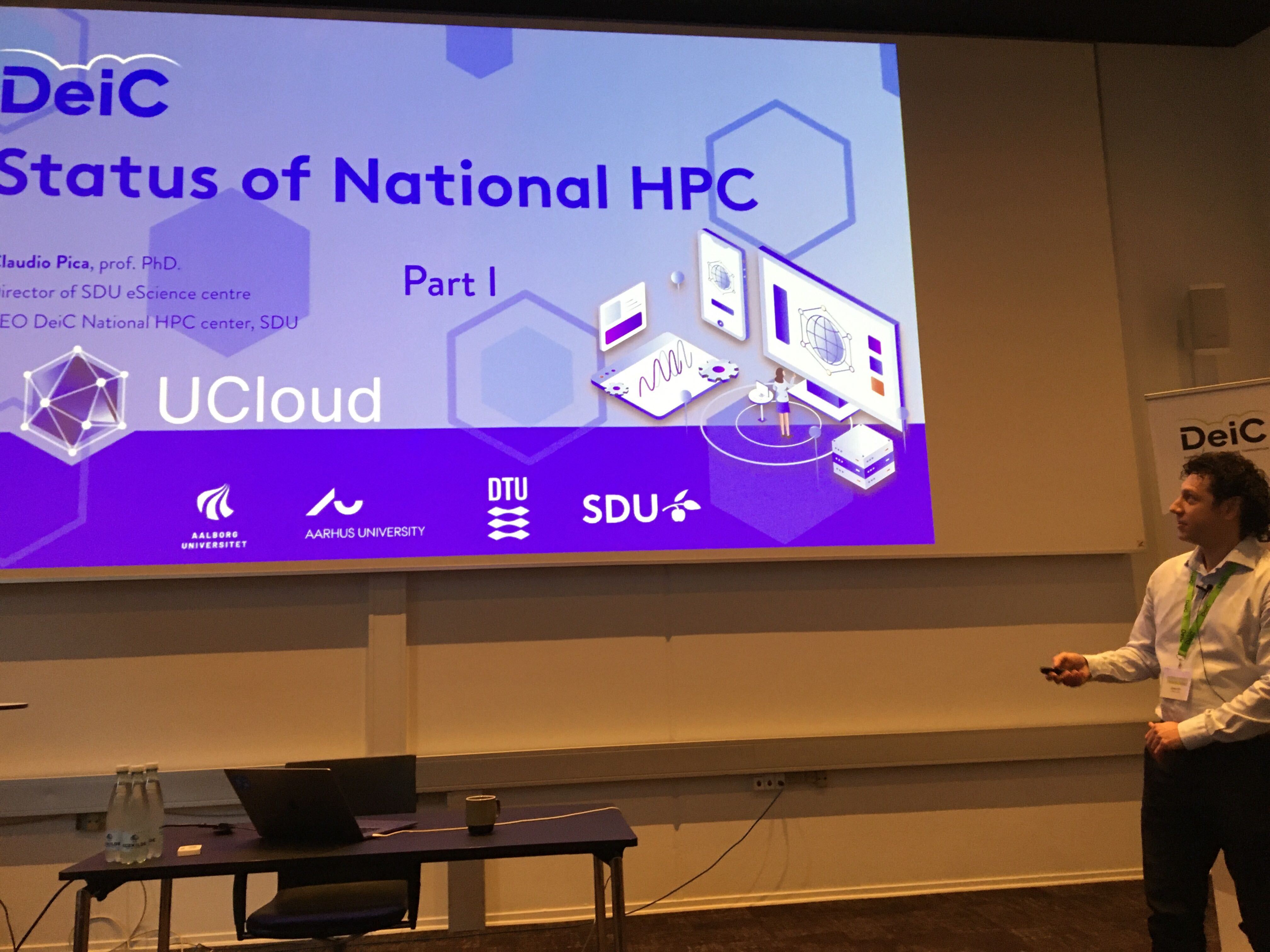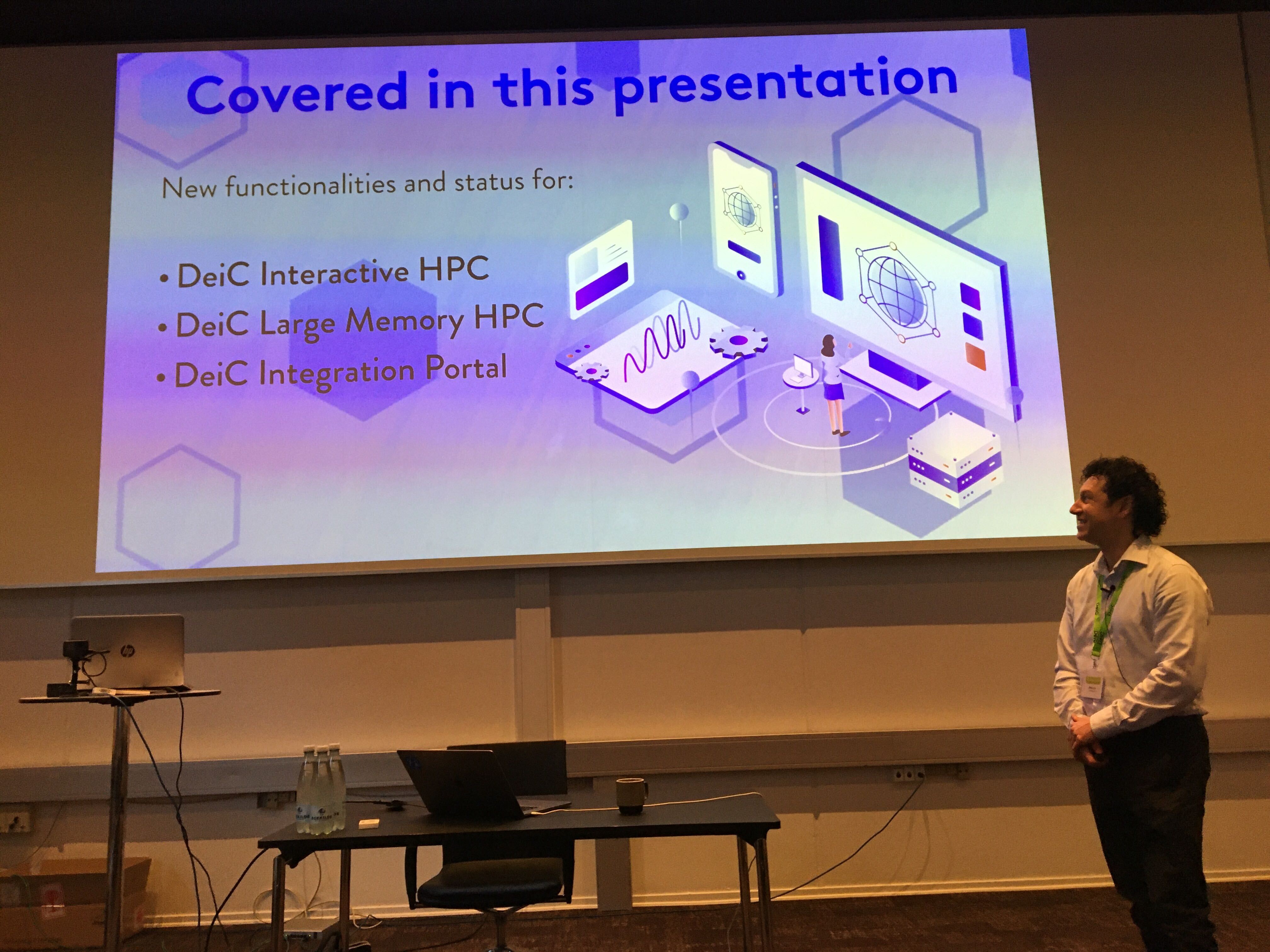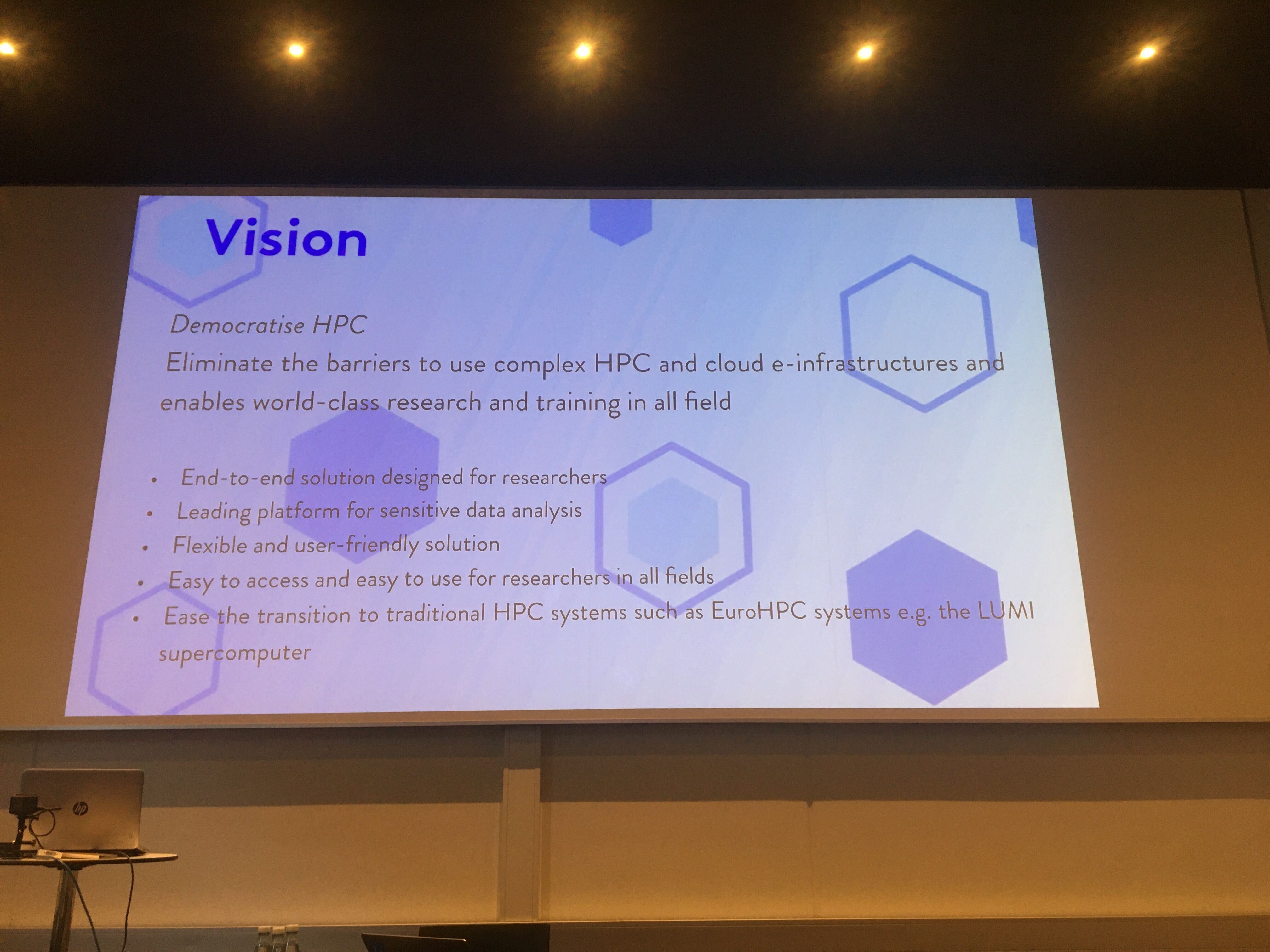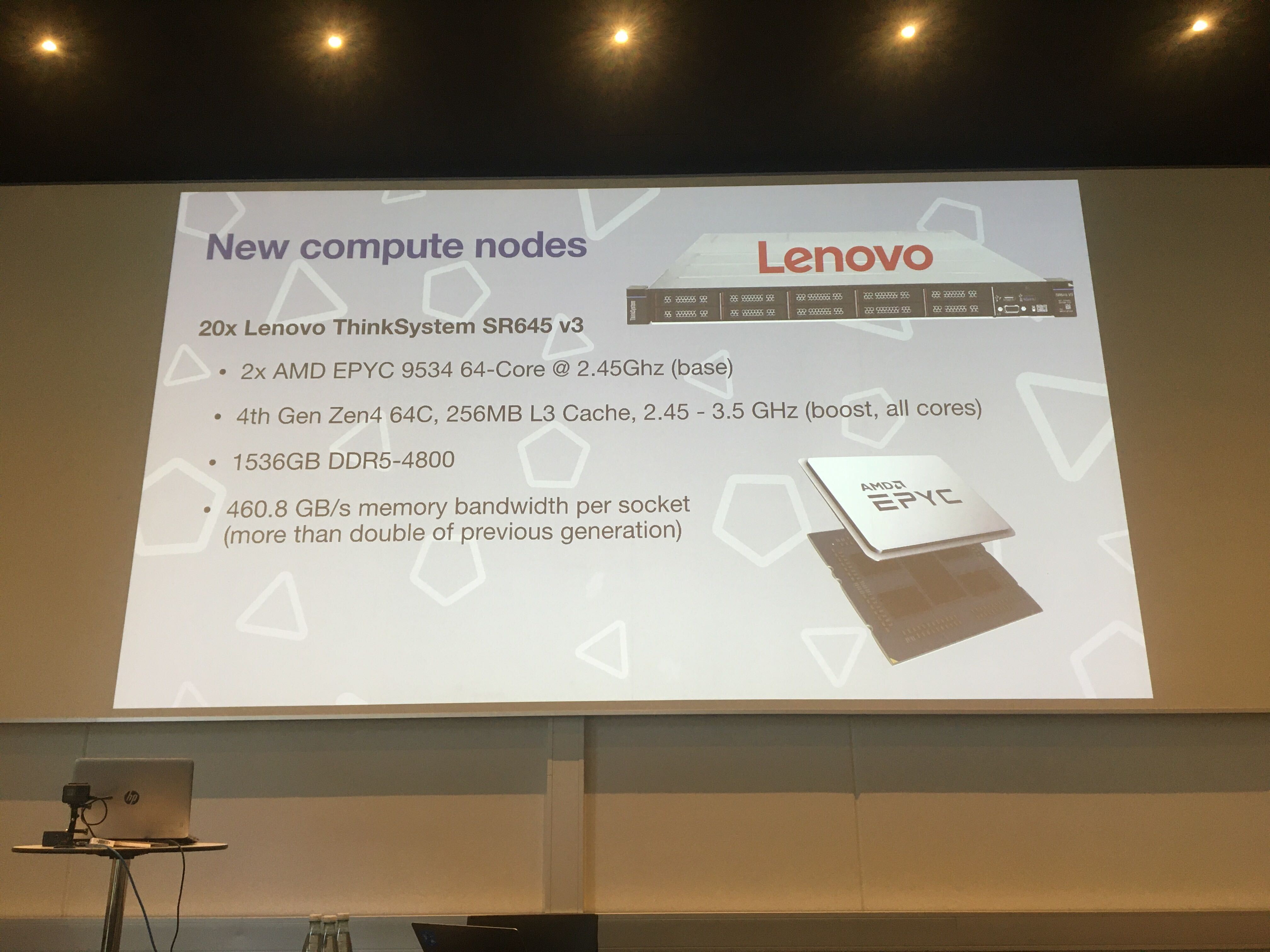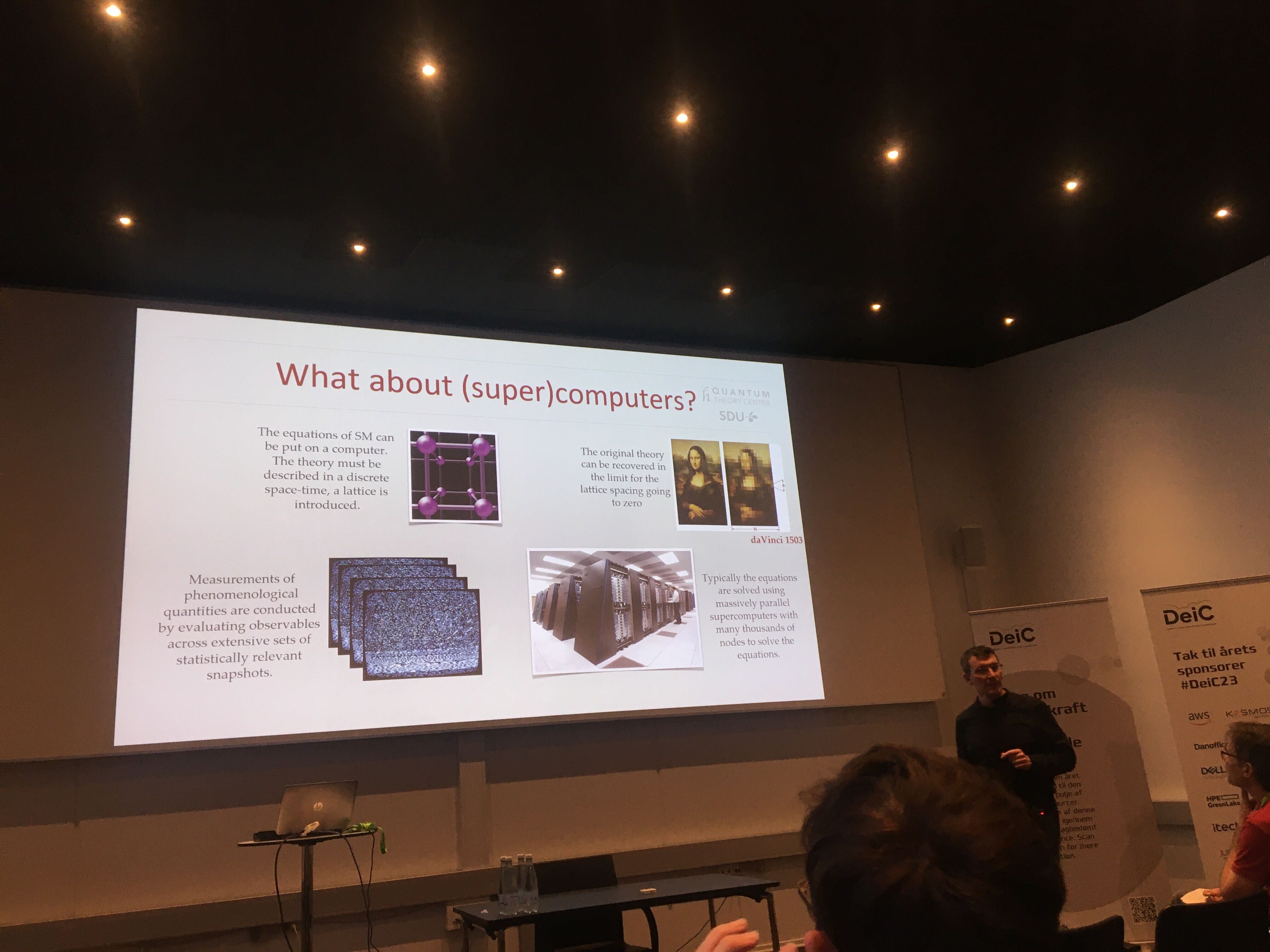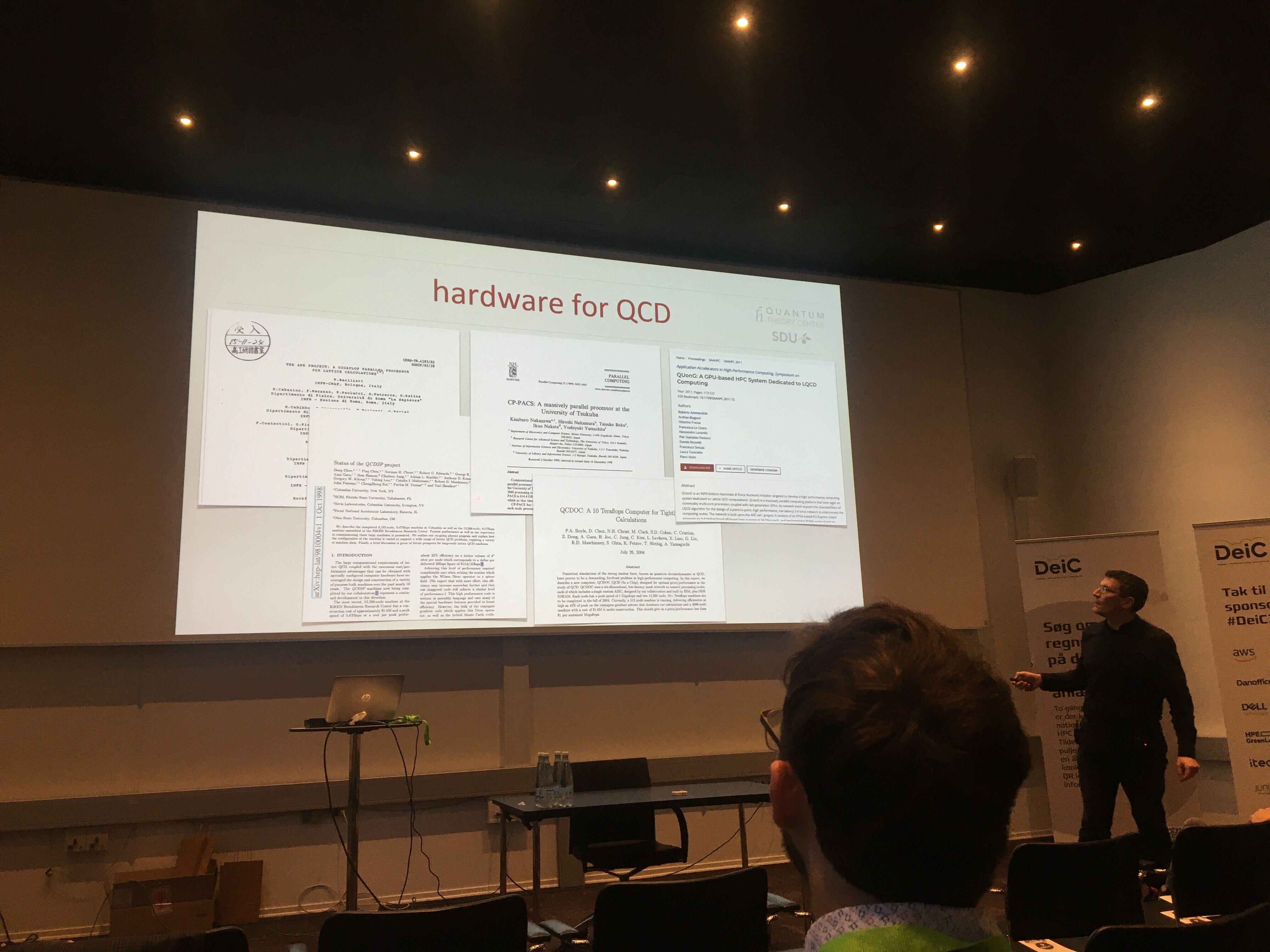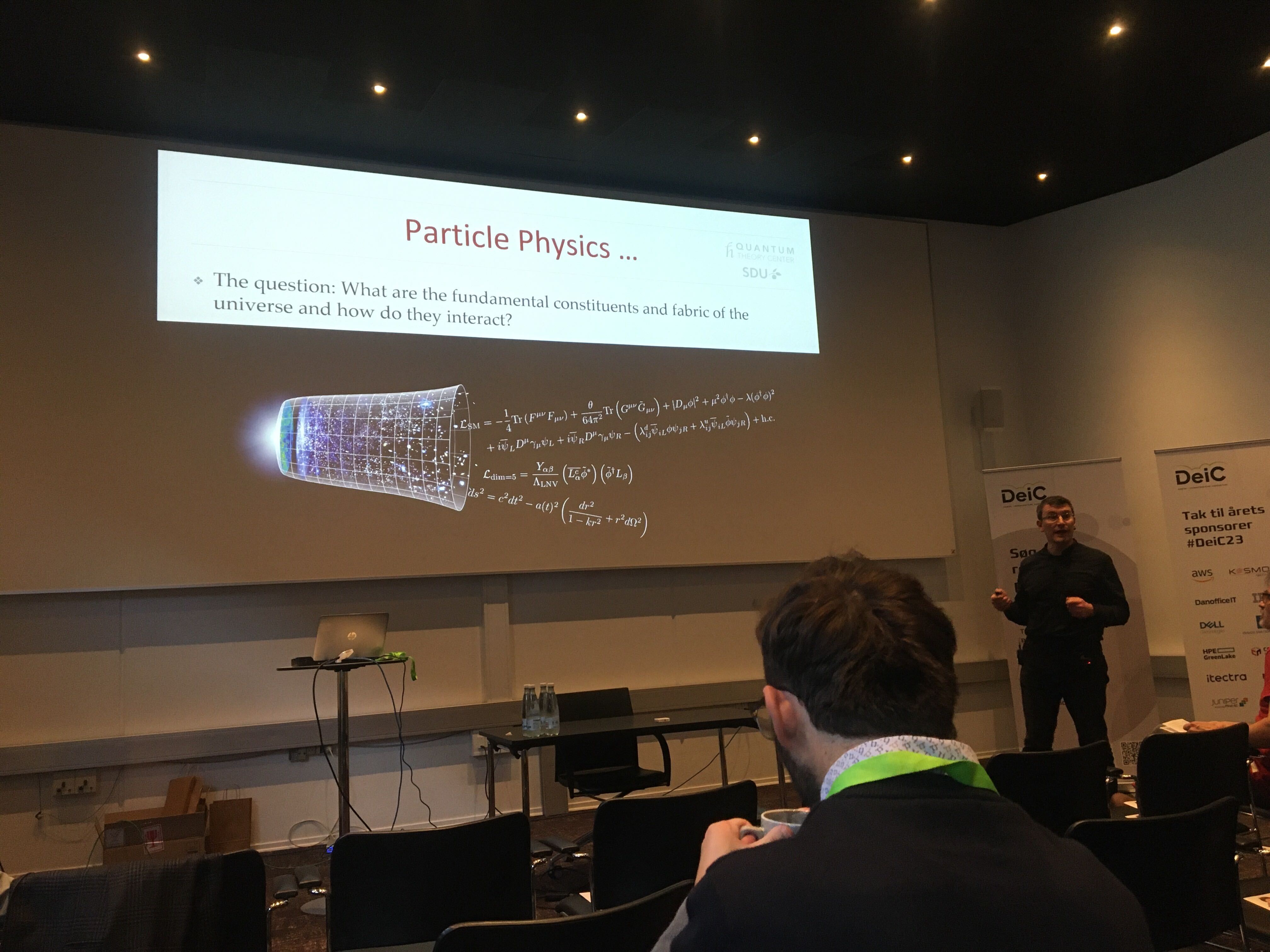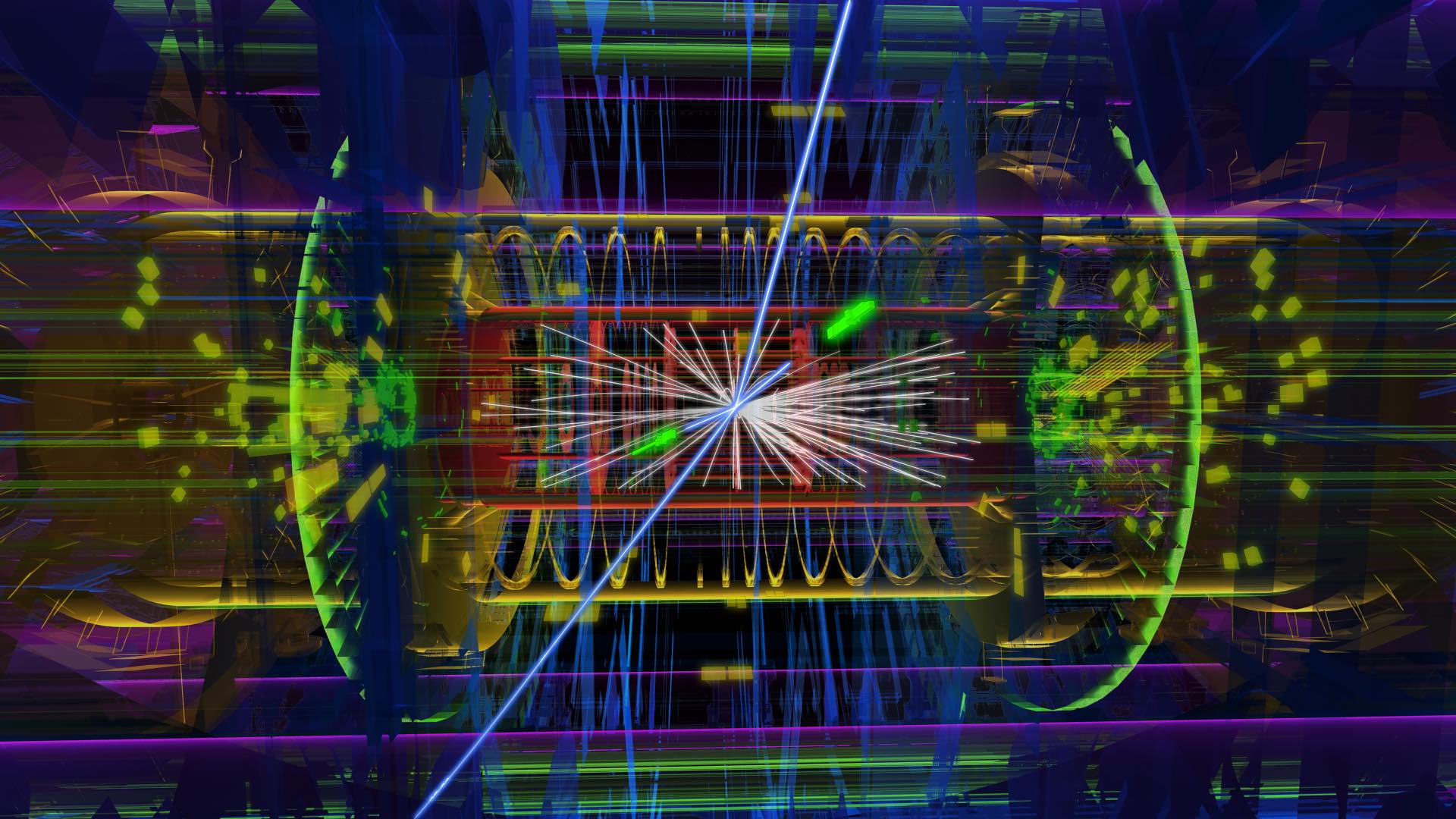The SDU eScience Center was present at this years annual DeiC conference where the overall topic was ”Providing secure digital infrastructure for research and education”. Read the reflections on the conference below from our team leaders, Dan, Martin, and Emiliano, and center administrator, Johanne.
Martin Lundquist Hansen, Team Leader Research Infrastructure
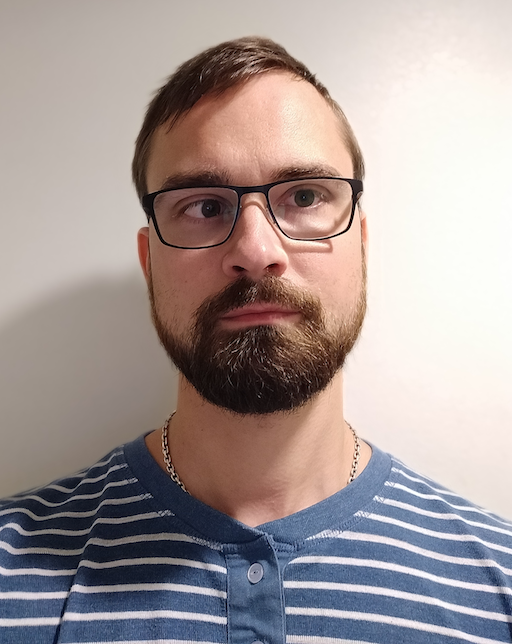
“As always the DeiC conference is an excellent opportunity to meet with colleagues from around the country and to discuss how things are going in other places. There were also several new vendors present at the conference this year, with a varity of interesting products and services.
This year one of the main topics were “providing secure digitial infrastructure for research” and there were several interesting presentations in the security track. In particular there were a couple of presentations by UFM (The Minstry for Higher Education and Science) that talked about the new national initiatives and strategies that are currently being developed and implemented to secure research and research infrastruture in Denmark. Among these initiatives is the establishment of the new DCIS-UFM unit, responsible for network and information security at the national universities and research institutions. This is done in close collaboration with existing DCIS units as well as DKCERT.
DKCERT also presented the current threat levels, which in many areas have been raised in the last year. Lately we have seen more cyberactivism and general attacks against Danish institutions. However, even though the threat levels have been increased, the university sector is still not a major target compared to other areas.
The new NIS2 directive was also brief discussed during these sessions. It is still not entirely clear how the national HPC facilities should be classified under this directive, but this is something that has to be clarified soon, such that implementation of the directive can done before the end of next year.”
Dan Sebastian Thrane, Team Leader Cloud Services
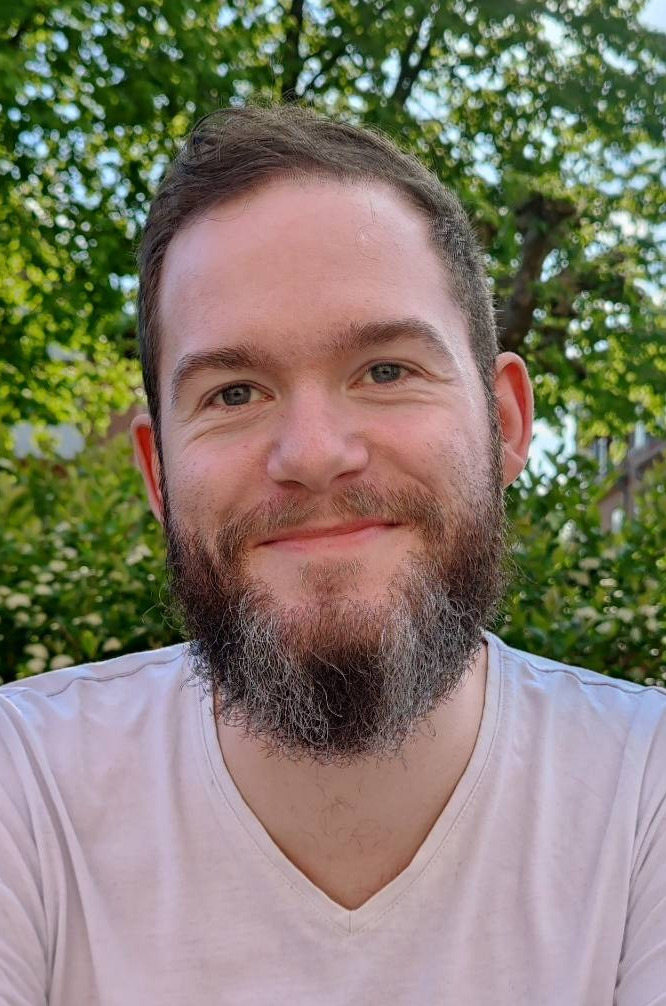
“This year, the conference focused on some interesting topics for service-providers. In particular, there was a large focus on quantum computers. The talks focused on use-cases, as well as general introductions to the topic. To me, this highlights the importance of a diverse service landscape. The talks highlighted how no single service can cover the needs of all researchers. This is important to us as service-providers, as our responsibility is to deliver value to our users. If a researcher has a problem, which is best solved with a particular tool, then we should strive towards supporting it. We have already seen how GPUs are used to tackle workloads which are infeasible with CPUs. In the future, we may very well see quantum computers utilized in a similar fashion.
With a diverse service landscape, it becomes crucial to improve their interoperability. This can be achieved in many ways. In this area, I think it is important to focus on reducing friction. We should aim to reduce the complexity of tedious tasks, and allow you to focus on your work. There must be a clear way to transition between systems. As service-providers, it is our responsibility to ease that transition. It can be very tempting to create a big unified system, in which the users do not have to care about the details of the underlying systems. But in doing this, we risk erasing the details that make the different systems interesting. Recently, we have started to tackle some of these problems with the DeiC Integration Portal.
Lastly, we saw many interesting use-cases from the different users of the DeiC systems. I always enjoy these as they provide valuable insights into how our users use the systems. It was great to see how interactive HPC is used for teaching in social sciences and humanities.”
Emiliano Molinaro, Team Leader User Support
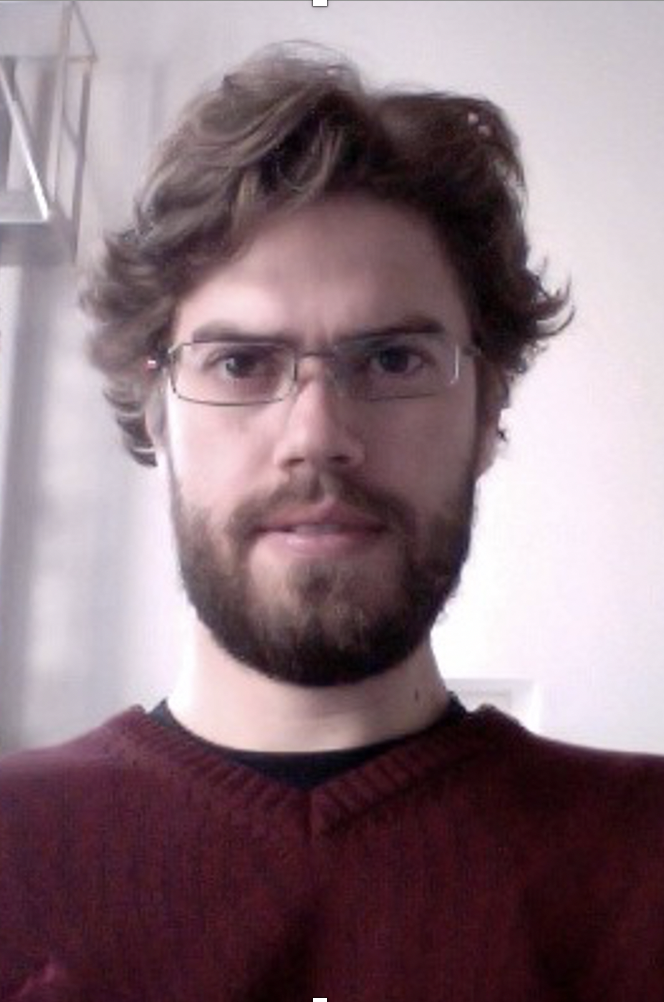
“At the DeiC Conference 2023, I had the opportunity to delve into the High-Performance Computing track, which showcased a remarkable array of research use-cases spanning across various disciplines. The diversity in application was striking, ranging from traditional HPC domains such as physics to innovative explorations in the humanities and social sciences.
Key highlights included:
- HPC in Social Sciences: Rolf Lyneborg from AAU gave insights on integrating machine learning with social data science, leveraging satellite images and Danish register data.
- Social Media Analysis: Jakob Bæk Kristensen from RUC presented a large-scale network analysis of content sharing across multiple social media platforms.
- Natural Language Processing: Rob van der Goot from ITU introduced a toolkit for multi-task NLP, highlighting its efficiency in resource-scarce scenarios.
- Materials Science for Sustainable Energy: Kristian Sommer Thygesen from DTU demonstrated how HPC aids in developing more efficient solar cell materials through atomic-scale simulations.
- Elementary Particle Physics: Antonio Rago from SDU explored the use of HPC for lattice theory in particle physics, emphasizing the field’s ongoing computational challenges.
- Digital History: Adela Sobotkova from AU talked about the application of HPC in teaching and researching digital history, utilizing large datasets to map historical phenomena.
The conference highlighted the evolving landscape of HPC applications, including the presentation of emerging quantum computing technologies. Notably, many of the studies presented by researchers from Danish universities effectively leveraged our interactive HPC paltform, UCloud, demonstrating its versatility and impact across a wide spectrum of research fields.”
Johanne Lyhne Hansen, Center Administrator

“I really enjoyed the many different talks at this years DeiC conference – sometimes it was hard to choose between the four tracks [HPC, Data Management, Security and Network Services], because so many of the talks were either relevant for what I do or relevant for me to know more about.
It was especially a great pleasure to see the many use cases from the HPC track. I have had the opportunity to interview researchers before about the use of digital methods in their research, but I was once again impressed by the diversity and ingenuity of research conducted on the DeiC HPC services. It’s always great to hear that the work done at our center as well as by our collaborators is appreciated.
Other talks I enjoyed included an overview of the strategy for cyber security for the universities, presented by UFM (The Ministry for Higher Education and Science), as well as a talk regarding AI and copyrights, where it was once again demonstrated that new technologies are challenging legislators: how do we balance the needs from researchers and industry, while still protecting individual and creative rights?”
h
Presentations from SDU
At the conference, the SDU eScience Center’s director, Prof. Claudio Pica, presented a status of the DeiC Interactive HPC service, the DeiC Integration Portal and the DeiC Large Memory HPC system.
Associate Prof. at Department of Mathematics and Computer Science, Antonio Rago, also did a presentation on HPC for Elementary Particle Physics. The recording of this presentation will become available via the DeiC website soon. You can also read a recent article about Antonio’s gigantic grant on the European supercomputer, LUMI.
